
The Notting Hill Carnival is an annual Caribbean Carnival event that has taken place in London since 1966 on the streets of the Notting Hill area of Kensington, over the August Bank Holiday weekend.
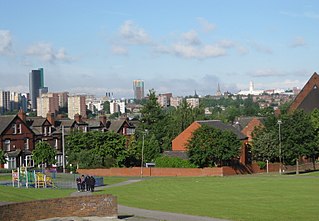
Harehills is an inner-city area of east Leeds, West Yorkshire, England. It is approximately 1 mile (1.6 km) north east of Leeds city centre. Harehills is situated between the A58 and the A64. It sits in the Gipton & Harehills ward of Leeds City Council and the Leeds East parliamentary constituency, between Burmantofts and Gipton, and adjacent to Chapeltown.

Chapeltown is a suburb of north-east Leeds, in West Yorkshire, England. It is part of the Leeds City Council Ward of Chapel Allerton. It is approximately one mile north of Leeds city centre.
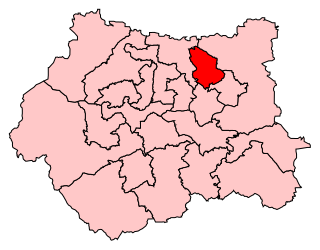
Leeds North East is a constituency which has been represented in the House of Commons of the UK Parliament since 1997 by Fabian Hamilton of the Labour Party.

West Yorkshire Police, formerly the West Yorkshire Metropolitan Police, is the territorial police force responsible for policing the metropolitan county of West Yorkshire, England. It is the fourth largest territorial police force in England and Wales by number of officers.

Potternewton is a suburb and parish between Chapeltown and Chapel Allerton in north-east Leeds, West Yorkshire, England. It is in the Chapel Allerton ward of Leeds City Council.
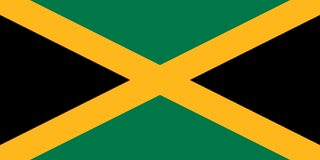
The Jamaican diaspora refers to the body of Jamaicans who have left the country of Jamaica, their dispersal and to a lesser extent the subsequent developments of their culture. Jamaicans can be found in the far corners of the world, but the largest pools of Jamaicans, outside of Jamaica itself, exist in the United States, United Kingdom, Canada, the Cayman Islands and all across the Caribbean Coast of Central America, namely Panama, Cuba, Costa Rica, Nicaragua, and Honduras.
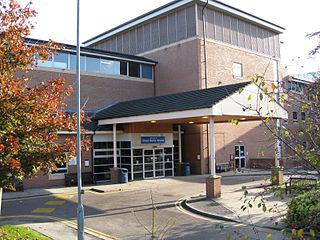
Chapel Allerton Hospital is located in the area of Chapel Allerton, Leeds, West Yorkshire, England and is operated by the Leeds Teaching Hospitals NHS Trust. The main entrance is on Chapeltown Road, with vehicle exits onto Harehills Lane and Newton Road.

The Harehills riot took place in the multi-ethnic Leeds district of Harehills in 2001. The riot occurred after the alleged wrongful arrest of an Asian man by the West Yorkshire Police which was alleged to have been heavy-handed. More than 100 Asian, White, and Black youths were together involved in the six-hour-long rioting against the police. The West Yorkshire Police later stated that any attempt to legitimise criminal behaviour by saying it is connected with racial tension or the style of policing is just an excuse for young males committing crime on the streets. It was the first rioting in Leeds since the Hyde Park riots of 1995. The Police Officer involved in the alleged wrongful arrest was questioned, and later cleared of any wrongdoing.
The Chapeltown riot occurred on 5 November 1975 in the troubled Leeds district of Chapeltown in West Yorkshire, England. They were not to be the last riots in the area with further rioting in 1981 and 1987 and rioting in nearby Harehills in 2001.

The Leeds City Council election took place on 2 May 2002 to elect members of City of Leeds Metropolitan Borough Council in West Yorkshire, England. Prior to the election, there had been several by-elections held with no change to the council composition. One third of the council was up for election and the Labour party stayed in overall control of the council.

Chapel Allerton is an inner suburb of north-east Leeds, West Yorkshire, England, 2 miles (3.2 km) from the city centre.
The Chapeltown Riots of 1981 took place in the Leeds district of Chapeltown in West Yorkshire, England, during a time when many other areas of the UK were suffering similar problems. The riots unfolded in July 1981 from a background of racial tension, inner city poverty, poor housing and high unemployment. This brought high tension, particularly amongst the area's Caribbean community, culminating in attacks on the local police.
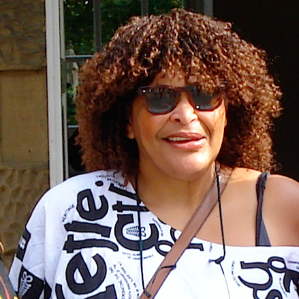
Geraldine Connor, PhD, MMus, LRSM, DipEd, was a British ethnomusicologist, theatre director, composer and performer, who spent significant periods of her life in Trinidad and Tobago, from where her parents had migrated to Britain in the 1940s. Her father was actor, singer and folklorist Edric Connor and her mother was theatrical agent and cultural activist Pearl Connor. Geraldine Connor is best known for having written, composed and directed Carnival Messiah, a spectacular work that "married the European classical tradition of oratorio with masquerade and musical inspiration from the African diaspora". For more than 20 years, she lived in Skelmanthorpe in Yorkshire, where she went in 1990 as a lecturer at the University of Leeds.
Sam Beaver King MBE was a Jamaican-British campaigner and community activist. He first came to England as an engineer in the Royal Air Force (RAF) during the Second World War but returned to Jamaica in 1947. Failing to settle there, King took passage to London in 1948, sailing on the Empire Windrush. He later became the first black mayor of Southwark and a campaigner in support of West Indian immigrants to the country.
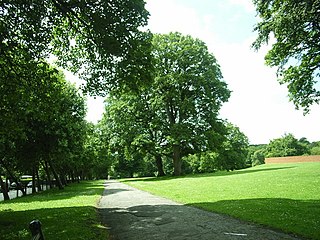
Potternewton Park is a public park located in Chapeltown, approximately two miles north of Leeds city centre, West Yorkshire, England.

Gertrude Maretta Paul was a teacher and advocate for the British Caribbean community in Yorkshire.
Cedric Clarke is a retired British Labour politician. He was the first black Leeds City Councillor, serving from 1980 to 1990 and was made an Honorary Alderman of Leeds in 2016

Khadijah Ibrahiim is a literary activist, theatre maker and writer from Leeds. She is the founder and artistic director of Leeds Young Authors, and executive producer of the documentary ‘We Are Poets’. She and her work have appeared on BBC Radio 1Xtra, BBC Radio 3 and BBC Radio 4.

























